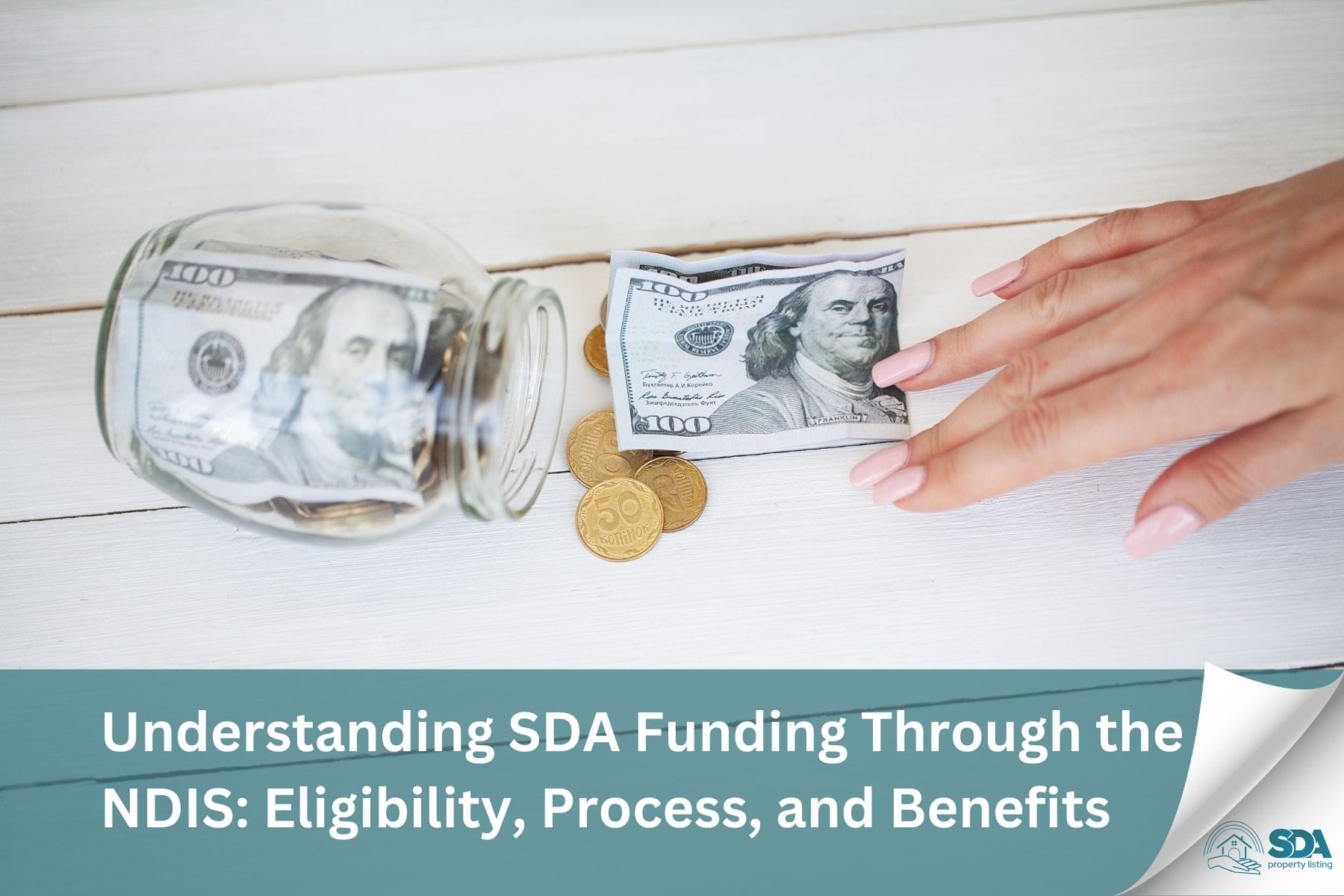
Understanding SDA Funding Through the NDIS: Eligibility, Process, and Benefits
Accessing funding for Specialist Disability Accommodation (SDA) through the National Disability Insurance Scheme (NDIS) can seem overwhelming, but it doesn’t have to be. This article will simplify what you need to know about finding SDA funds such as eligibility requirements, application process and benefits of securing this kind of assistance.
Why is SDA Funding Important Within the NDIS?
Specialist Disability Accommodation (SDA) funding is significant in the National Disability Insurance Scheme (NDIS) because it enables individuals with disabilities to have homes adapted to their special needs. SDA funding covers the additional costs associated with making modifications or constructing specialized buildings that aren’t typically provided in standard houses. This includes wheelchair access, automated systems, and reinforced structures for safety. Through SDA funding, NDIS makes sure that those with high level support requirements are able to access a secure and appropriate home that enhances their lives and enables them to be active members of society.
Who is Eligible for SDA Funding?
Eligibility for SDA funding under the NDIS is determined by several key factors, all centered around the applicant’s level of need:
Severe Functional Impairment or High Support Needs
The individuals who apply for this must show that they have either extreme functional incapacitation or highly dependent lives. This might be associated with physical disabilities, cognitive or sensory weaknesses, or psychosocial disorders which greatly restrict their capability to do routine tasks.
NDIS Plan Requirement
It is required for SDA to be contained in the participant’s NDIS plan. This denotes that during the planning process, it is important for the participants to clearly establish their reasons for needing SDA, as well as how it matches their objectives and general support plan.
Evidence of Long-Term Benefits
Applications showing long-term advantages from SDA funding tend to be positively regarded by the NDIS. For instance, if the specialized accommodation minimizes other types of assistance or reduces future expenses that are likely to be greater, it serves to solidify the argument for funding.
Supporting Evidence and Reports
Reports from healthcare professionals, such as occupational therapists or disability experts, should be detailed and clearly outline the individual’s needs. These reports should explain why SDA is crucial for their safety, independence, and well-being. Additional supporting documents such as risk assessments that identify hazards in the current living environment, evidence detailing any accessibility challenges or safety issues in the applicant’s current home, and support letters from carers, family members, or support workers that provide further insight into the applicant’s daily needs can also enhance the application.
How to Apply for SDA Funding
The process of applying for SDA funding through the NDIS involves several important steps:
Discuss SDA During Your Planning Meeting
Start by talking about your requirement for SDA at the first NDIS planning meeting you have. You must articulate how your existing home does not meet your needs and how SDA would uplift the quality of your life.
Gather the Necessary Evidence
Seek assessments from experienced individuals, such as occupational therapists, physiotherapists, or medical specialists, who can thoroughly evaluate and describe your unique requirements for specialized accommodation. This documentation is vital in supporting your application and illustrating the significance of SDA funding.
Submit a Request in Your NDIS Plan
Your NDIS plan submission must contain a request for SDA. Ensure that you explicitly state the reasons why SDA is a reasonable and necessary support for you and how it aligns with your objectives.
Wait for the NDIS Decision
After submission, the NDIS will review your plan and the supporting documents. If they agree that SDA is necessary and reasonable, they will include it in your NDIS plan, allowing you to start looking for an appropriate SDA provider.
Select an SDA Provider
Once an official approval is given, the next step is to search for an SDA provider that agrees with the requirements of NDIS and has the ability to provide housing alternatives that are most appropriate for you.
Benefits of Securing SDA Funding
There are several advantages to obtaining SDA funding through the NDIS:
Enhanced Independence
With appropriate SDA accommodation, people can more easily carry out their daily tasks, which makes them less dependent on caregivers as well as support services. This enhanced independence also serves to improve their standard of living on a day-to-day basis and enhances their self-esteem and personal freedom.
Customized Living Environment
SDA properties are specifically designed to cater to the distinct needs of the residents, incorporating various levels of accessibility and support technologies. These modifications ensure that the housing is well-suited to an individual’s unique requirements, promoting both physical and psychological comfort. While most SDA accommodations are shared or group homes, individuals with specific needs or preferences may request a separate, private home to better support their independence and personal care requirements. This flexibility in housing options allows for a more customized living environment that enhances the overall quality of life
Reduced Caregiver Burden
The requirement for informal care from family and friends will be reduced with proper SDA housing which will reduce stress and relieve the emotional and physical burden on caretakers. The overall health of the support network, which is further improved through this, creates an environment that is balanced and supportive for the individual.
Long-Term Financial Benefits
Although SDA may require an initial investment, it can result in considerable long-run savings brought about by decreased requirements for health emergencies, admission to hospitals or use of advanced help services. Investing in SDA can ultimately lower overall care costs and provide more sustainable support solutions.
Conclusion
It is important to have an understanding about SDA funding through NDIS for individuals with disabilities who need specialized housing solutions. To be able to navigate the NDIS system more efficiently, participants should know about eligibility criteria, application process and NDIS benefits. Whether you are starting your NDIS journey from scratch or applying for SDA funding, staying updated and alert is critical in getting the assistance you deserve.








